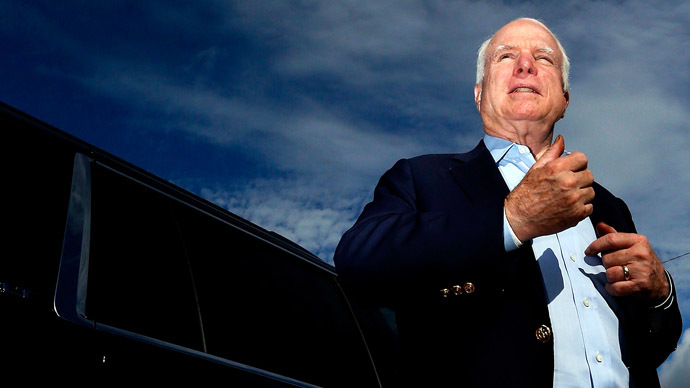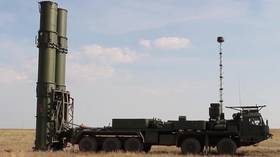US foreign policy: The clash of righteous purpose

At home and abroad, American foreign policy appears on the cusp of a massive multi-layered clash of cultures.
The foreign policy pendulum has swung against the paralysis through analysis approach of the anti-Bush era. The ”hopey changey” one has presided over a scaling back of American influence. However Obama’s intentional void has not been filled with fellow liberal travelers but rather downright objectionable souls such as ISIS. From Israel to Syria through Ukraine and across Asia, everybody can agree that problem resolution has eluded the current US administration.
Post midterm elections, resurgent Republicans are setting up a massive confrontation within Washington which will ripple across the world. At the crux is the clash of righteous purpose. Left-leaning liberal President Obama implacably believes he knows best. He has righteous purpose infused into his DNA. Or as Kentucky Senator Mitch McConnell pithily defined the Obama presidency: “…a government too busy imposing its views on those who don’t share them.” The Kentucky Senator and likely House Majority leader is a key figure likely to shape a more interventionist foreign policy going forward: the GOP’s own sense of righteous purpose. Perhaps the greatest hawk is John McCain, poised to become Senate Armed Forces Committee Chairman. Former Vietnam POW McCain clearly exemplifies the enormous sacrifice which must be applauded in all veterans, but since his defeat to President Obama in 2008, he has resembled a parody figure still clinging to the cold war as a comfort blanket. However McCain’s redefined mission as overseer of the massive US military budget looks fascinating. Barack Obama’s “hokey cokey” around the Syrian red line frustrates him while the rise of ISIS positively infuriates him. McCain will likely press for more military intervention. At the same time, his oversight will deliver pointed criticism of the military. While higher spending may be on the cards, McCain will expect improvements in resource deployment: defense contracts must be delivered on budget and on time.
Bob Corker of Tennessee will likely chair the Foreign Relations Committee and retains hawkish precepts similar to McCain. Corker may be in a greater position to influence more support for Ukraine and less engagement with Russia (direct armed action appears unlikely). While known as a dealmaker and a man seeking broad global US engagement, the agenda may face opposition from an apathetic US public unconvinced the Bush doctrine delivered significant benefits.
Meanwhile President Obama’s Tehran correspondence has led Senators Corker, McCain and Marco Rubio to demand any Iranian deal be subjected to a full up/down vote. Presumably an improvement in relations with Israel is looming alongside more US arms deliveries to not just the Middle East but, if the hawks prevail (as seems likely) then munitions may flow not just to Ukraine but Georgia - perhaps anybody with an axe to grind against Russia.
Given the considerable foreign policy power concentrated on the Presidency itself, success overseas is often a useful way out for a lame duck President such as Mr. Obama whose term has been profoundly disappointing to date (perhaps the only thing both his fans and foes can agree on). He may yet find common ground to ally with the GOP and promote free trade through the completion of TTP (Asia) or TTIP (Europe). Then again how will the GOP react to China flexing its muscles over territorial disputes? After all, the US last adhered to such a broad interventionist playbook before six solid years of Asian growth fuelled eastern power during a challenging economic period for the West.
There may be a worrying thread that the GOP’s approach to foreign relations represents the outlook of analogue ideologues. Engagement is back with the “Obama void” to be first flushed then replenished with American power. A pragmatic balance of US power helps maintain global balance. However the world is already a more multipolar process than 2008. There is a clash of righteous purpose looming at all levels, particularly because the President has considerable unilateral power to act in foreign policy. That could set up a colossal spat with Congress.
The question is can President Obama dissipate the clash of righteous purpose, overcome his reputation as “Mr. Dithery Do Nothing,” and fill the void not just in US foreign policy but also his own gaping legacy of achievement as President? Hopefully the GOP can balance peace and avoid making conflict a new normal.
The statements, views and opinions expressed in this column are solely those of the author and do not necessarily represent those of RT.
The statements, views and opinions expressed in this column are solely those of the author and do not necessarily represent those of RT.













